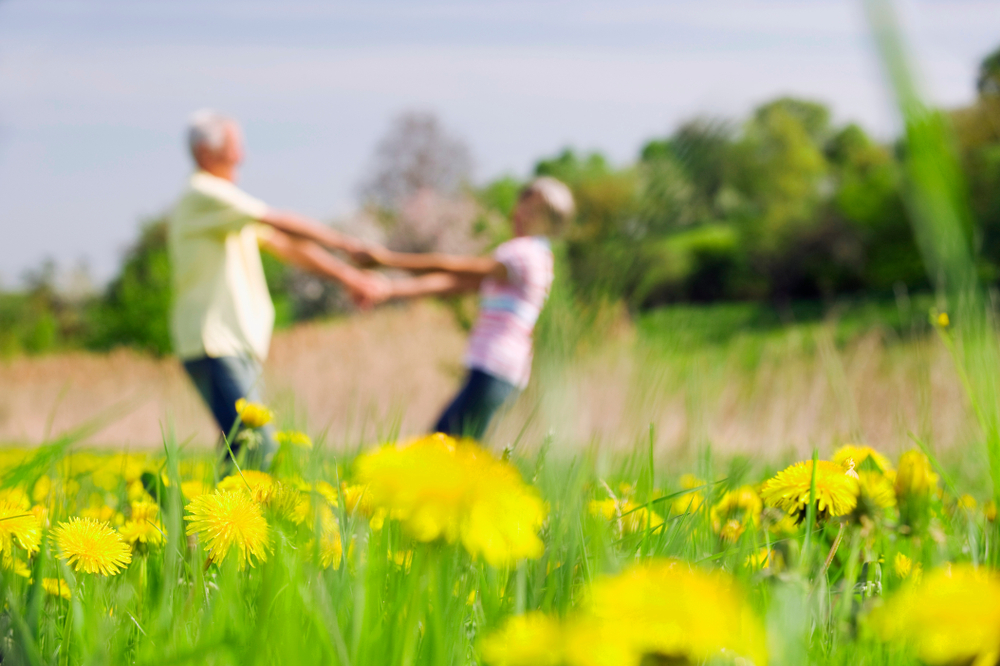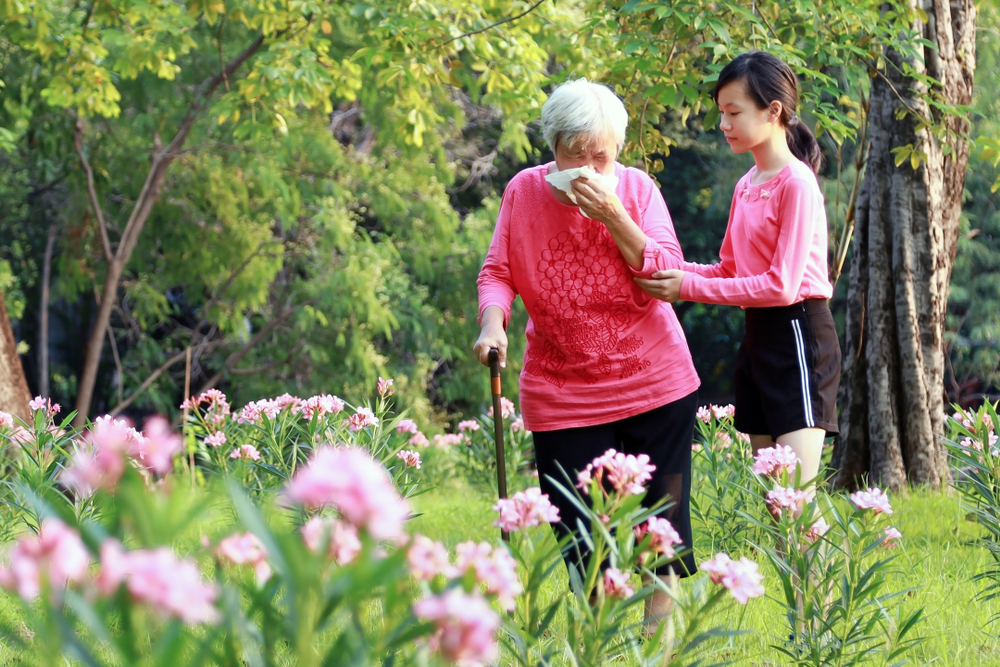Spring is coming up shortly. Are you ready?
The weather will begin to warm up before we know it and the thawing will begin. This is also the time when spring maintenance is often necessary.
For aging seniors, these tasks can be too difficult to perform alone, especially if they have mobility issues. There are many ways that assisted living homes near you can help prepare residents for the spring to ensure seniors are safe and ready for the new season.

Getting Your Home Ready for Spring
1) Change Batteries of Smoke Detectors
It’s always a good idea to monitor smoke detectors, emergency kits, and fire extinguishers. According to the US fire administration, you should check smoke detectors at least once a month and change batteries at least twice a year.
Since smoke detectors are usually located on the ceiling or high up on the wall, they can be a falling hazard for the elderly. If someone is there to help, however, the risk of falling will be significantly reduced.
2) Remove Clutter
Clutter cleanup should be part of every spring cleaning routine. Clearing out the clutter in the main walkways of the living area will help reduce the chance of falls. Things that can cause falls should probably be removed. This includes rugs and any other unnecessary furniture. You should also watch out for any cords or wires that might cause tripping; these should be relocated elsewhere in the home.
3) Check the Medicine Cabinet
Spring cleaning is an opportune time to go through your loved one’s medicine cabinet to dispose of any old or unused medications. You’ll also want to make sure that any medicines they are still taking are kept sealed and stored in a cold, dry place. For more information about the safe disposal of medications, see the official FDA website.
4) Do a General Cleaning
Spring cleaning is all about cleaning those parts of the home that are often forgotten and neglected. The areas you’ll want to clean first are window casings, baseboards, the tops of cabinets, and any ceiling fans. Next, launder or dry-clean draperies. Also, clean the wood and vinyl blinds. Do a good vacuuming of the upholstered furniture. As for the carpets, it’s best to get a professional cleaning done.
5) Do a Home Safety Inspection
An aging senior should always feel safe in their own home. Besides just removing potential safety hazards and decluttering the home, there are other steps that can be taken:
- Installing grab bars beside the bathtub/shower and toilet. If necessary, you can also add a shower chair or even a hand-held shower.
- If there are any stairs inside or outside the home, then it’s a good idea to install handrails on each side of the stairs.
- Bright lighting is also important in senior living. Do an inspection of the lighting and see if it’s bright enough. Check the motion lights around walking paths, lamps, and any hallway nightlights.

Preventing Colds and Allergies
In addition to making the assisted living homes home safer, you should also consider senior caution when outdoors during springtime. During Spring, when many people suffer from allergies, it’s important to be able to distinguish between the common cold, allergies, and possibly a more serious illness.
Thankfully trained staff in senior living communities can perform an evaluation to determine the cause of sniffles, sneezing, and coughing.
If it’s determined that allergies are the cause, here are the steps that a senior can take to enjoy the outdoors amidst the rising pollen levels.
1) Track Allergen Levels
It’s easier than ever to track pollen levels in your zip code. Just head on over to Weather Channel’s Allergy Tracker or Pollen.com. If the pollen levels are high for that day, then consider staying indoors.
2) Close Your Windows
While we love the outdoors during Spring, mother nature does not always love us back. When the air is filled with pollen, keep your windows close so that you don’t breathe them in, and so that your living area doesn’t get filled with pollen as well.
3) Avoid Skin Contact With Pollen
If you normally air dry your clothing, this is the time when you’ll want to use your dryer instead. Why? Because you want to keep the pollen in the air off of your clothing. Additionally, remember to wash your hands every time you come back inside so that your hands won’t end up getting pollen in your eyes or mouth. Shampooing your hair often during spring is also a good idea.
4) Anti-Histamine and Anti-Inflammation Foods
There are many foods that are believed to combat histamines (the reactions we have to allergies) and reduce inflammation. Some of these foods include anchovies, mustard seed, garlic, green tea, blueberries, apples, sunflower seeds, turmeric, pineapple, flaxseed, and sweet potatoes.
Staying Safe Outdoors During Spring
When spring comes, we understandably all want to go outside! However, seniors, in particular, must take some precautions to avoid problems like overexertion, falls, and more.
1) Put on Those Shades
Besides the obvious fact that sunglasses will protect your eyes from the sun, they will also help to keep the pollen out of your eyes (if you don’t already wear glasses).
2) Get a Nice Pair of Shoes
Make sure that your shoes fit your feet so that walking will be more comfortable. If you’re getting a new pair of shoes, make sure that you get a pair with slip-proof soles to help prevent falls.
3) Set Up Good Lighting
Good outdoor lighting is essential, especially in areas where seniors like to frequent at night or in the early morning hours.
4) Use Sunscreen
Sunscreen is extremely useful in the springtime (yes, not just in summer). This is because, after the winter, our skin will not be as accustomed to sunlight, thus increasing the probability of sunburn. In fact, sunburn can occur in as little as 15 minutes without sunblock.
5) Drink Plenty of Water
Even if you aren’t thirsty staying, hydrated is essential for one’s well being. If you aren’t getting enough water, you can feel lethargic and tired throughout the day, always feel hungry, and experience headaches more often than you should.

